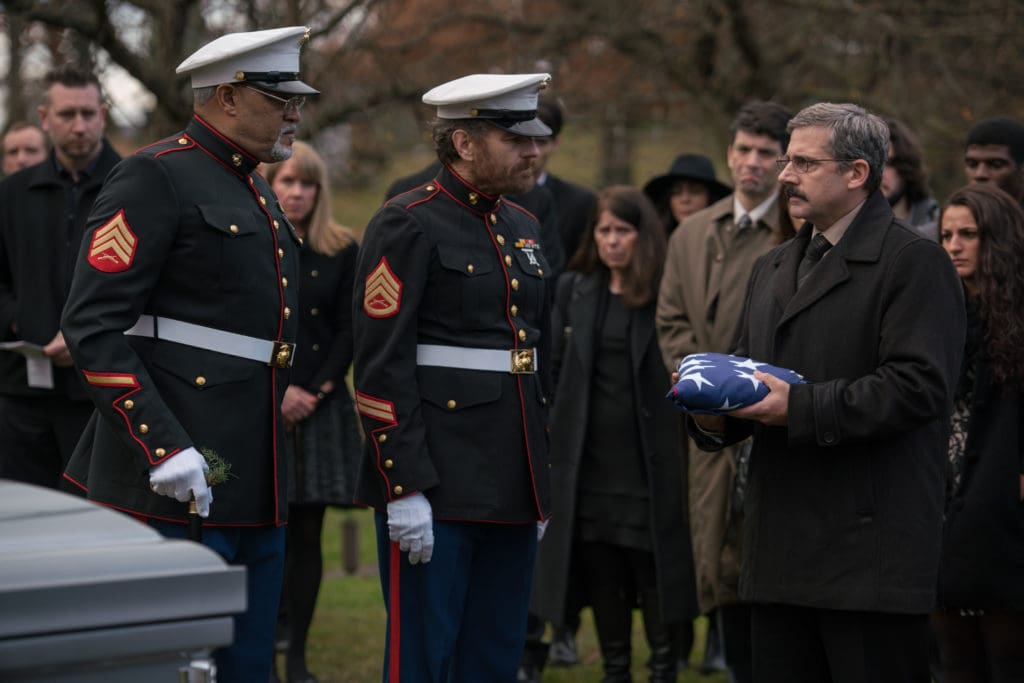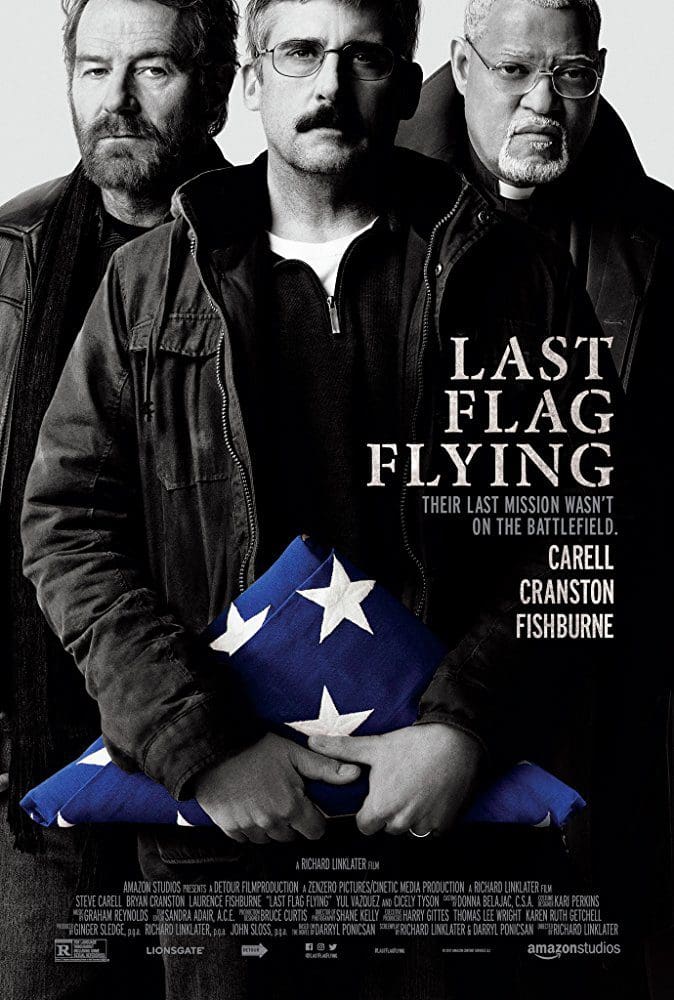Last Flag Flying Plot Summary:
Set in 2003, a former navy man’s (Steve Carell) son in the marines is killed in action in Baghdad, leading him to reunite with two fellow marines from his days in Vietnam to accompany him to the funeral, as they dig up old demons and regrets from the war.
If you’re a big fan of Richard Linklater, this is required viewing. If you’re anyone else, it’s also worth your time. Much like a Linklater film, there’s kind of a plot here, but it essentially goes off on tangents and conversations you can picture having with your friends late at night. Some of them work. Some of them don’t. They can be entertaining, funny, thought-provoking, pointless, boring and everything in between. While Linklater certainly has his hands all over this, the movie works because of the rapport between these three brilliant actors.
When you put Steve Carell, Bryan Cranston and Laurence Fishburne in a movie, you’d have to be a pretty bad director to screw it up. These guys are all on their A-game, and they are all very different characters. Fishburne is the reformed wild man now a preacher. Cranston is the loud mouth, Han Solo-esque drinker. Carell is the quiet one who’s going through the real emotional experience of the film. Despite all their differences, they all have one thing in common: War.

These characters haven’t seen each other in decades, but because they shared the most intense and traumatic time of their lives together, it feels like they’ve kept in touch for years when they all reunite. As the movie goes on, you slowly discover the demons and bad mistakes they made while in the war. They also have all the conversations you’d expect them to have in a Linklater film. They argue about the existence of God, the military, the war on terror, the government, alcoholism and even mobile phones. Like I said, it’s a Linklater film. Some are very serious and deep. Some are more lighthearted, as they tell their humorous tales of brothels and prostitutes to a current marine (J. Quinton Johnson) who was friends with Carell’s son.
This movie is essentially two hours of Cranston and Fishburne arguing. They are polar opposites. One deeply believes in the power of religion, while the other mocks him for it. Cranston is fantastic. He talks A LOT in this film. He is your obnoxious jackass friend, but he’s your obnoxious jackass friend. 97% of his lines usually work. Fishburne is a great foil for him. He’s the level-headed preacher, but he’s not preachy about it. He’s just trying to comfort his former friend (Carell), but gets annoyed whenever he has to respond to the ruffian that is Cranston. While Cranston and Fishburne’s back and forth is entertaining, it’s when the film focuses on Carell when it really hits.
I keep saying it, but Steve Carell is in such an acting zone right now. Even in the very underwhelming Battle of the Sexes, he was still great. There are long periods of the film where he doesn’t do anything. In between the Cranston and Fishburne shouting matches, Carell just sits there contemplating. He just wants to bury his son. While the movie diverts from this plot a lot, when it calls on Carell to take center stage, he gives an Oscar worthy performance. Whether it’s looking at his son’s body, or reacting to the stories about his son from his friend, Carell wrecks you. His understated demeanor juxtaposed with the loud personalities of the other two characters works flawlessly.
While the Linklater conversations are hit or miss, it’s the last fifteen minutes that creep this into being one of the better films of the year. There are two scenes that not only wrap up the film beautifully, but they had my audience melting down in tears.
While it’s easy to check out during this film here and there, Linklater delivers where it counts. It’s an emotionally gripping film with an exclamation point for an ending, anchored by three brilliant performers.
Rating: 8 out of 10 (Great)


